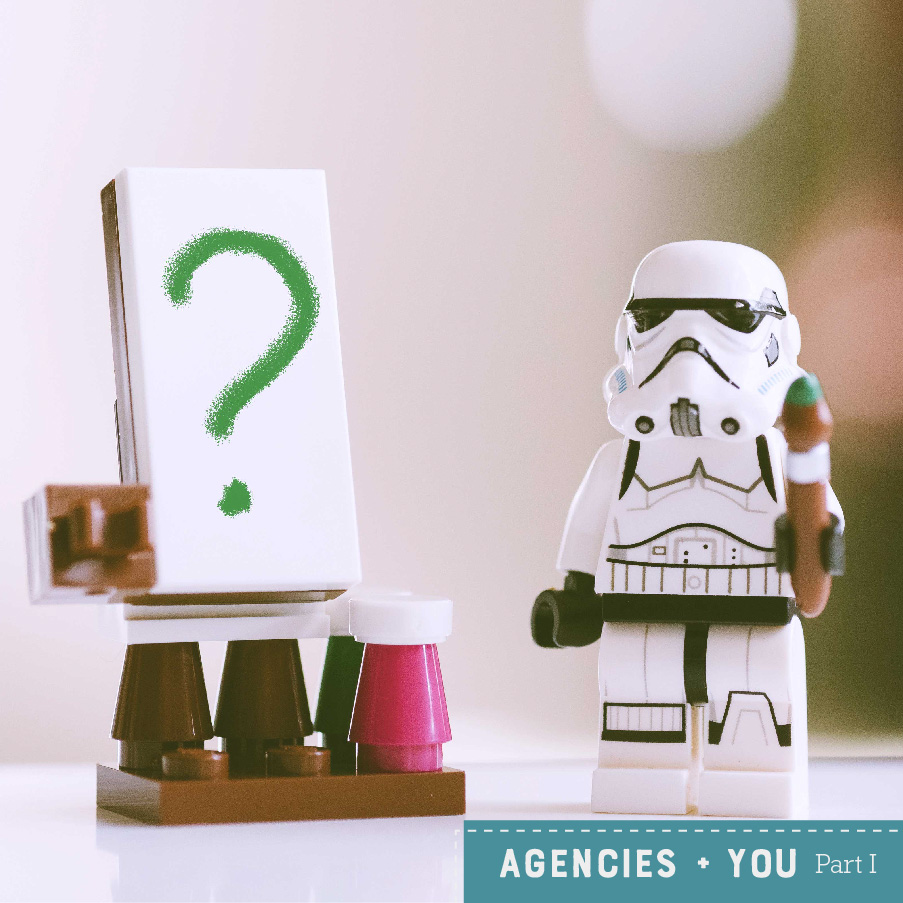In recent years we’ve heard more discussions about “company culture” than we can count. People are realizing that the environment you work in is just as important as the job you’re doing, and this is especially true when it comes to those who work in creative roles. A culture that supports creativity is what helps keep these team members motivated and striving to take their skill sets to the next level, because they have the people and resources available to help them reach their goals and perform their jobs well.
Unfortunately, a creative culture is what seems to be lacking in some in-house creative departments, and while it’s not intentional it can certainly cause team members to feel isolated. When in-house and freelance creative team members are left to work on their own or with a small team that is almost independent from the rest of the organization, it can be frustrating. They don’t have the opportunity to work with others. This can lead creatives to feel as if they are being siloed in a way that can only be alleviated by bringing in new perspectives through collaboration.
We’re seeing that many times, creatives aren’t necessarily looking for new jobs. Often, new opportunities are being dropped in their laps and they are recruited away to agencies: the opportunity to collaborate with others in a creative culture is too good to pass up. As a result, we are starting to see a shift away from in-house and freelance creatives back to agencies, even with unemployment rates at an all-time low. In a world that is becoming more complex with technology, being able to communicate clearly and cut through the clutter is increasing the demand for good communication, design, and marketing talent.
When this happens, businesses can be left in a vulnerable state because they have been dependent on one person to manage all of their branding and marketing efforts. In some cases, these efforts haven’t been well documented and the business doesn’t have much information to move forward with when they bring on another team member or agency–an issue that may have been avoided if all departments worked more collaboratively.
But why do creatives seek collaboration? Because collaborative work environments offer all creatives a number of excellent benefits. Working with a team brings multiple unique skill sets and knowledge to the table, creating a space where everyone can play off of each others’ strengths to build something better than they could on their own, in addition to producing higher quality work and faster delivery of the final product, according to Perspectives by Cogswell. Plus, there are multiple people that know the brand–in-house, your creative partner, and any freelance team members– so if someone does move on to a new opportunity, you’re not left spinning your wheels and wondering what to do next.
The bottom line is that creatives need the opportunity to collaborate with other creatives and even non-creatives in order to do their best work and thrive. When they don’t have this opportunity, they may be left feeling as if they are stuck in a creative rut or overwhelmed with all the tasks their roles entail. A collaborative creative culture gives in-house and freelance team members the support they need to create, ask questions, revise, pitch new ideas, and gain valuable insight from others that they won’t get when this type of environment doesn’t exist.
However, for some businesses, adding creative team members, whether in-house or on a freelance basis, may not always work due to budgets and other factors, and even those who can afford to have internal creative team members know one person can’t do it all. That’s where supplementing your in-house or freelance department with a creative partner can really benefit a business.
In many cases, bringing on an agency partner can alleviate the pressure on your in-house or freelance team members by handling higher level tasks like branding and marketing strategies, so these team members are able to focus their efforts on day-to-day tasks like social media management, newsletters, and blogs. In addition, an agency can work alongside your in-house or freelance team, as well as key decision makers, to set realistic goals and put a plan into place to achieve them.
An added bonus of working with an agency is that you have the skills, knowledge, and talent of an entire team of people to provide an outside perspective that you won’t find if you rely solely on your own team. An agency partner can view your organization as a potential customer would, and provide valuable insight on what speaks to them and where changes may be needed in order to help your brand stand out from the competition. When you combine all of the talent at hand and work together, you’ll always see the creation of something better than could ever be achieved by one person alone.
So, where does your business’s creative culture stand? Could you benefit from a new perspective by supplementing your team with an agency partnership? If you’re ready to start exploring whether an agency partnership is right for your business, schedule a call with Rock Paper Scissors and let’s start talking or subscribe to our email series for more information.


